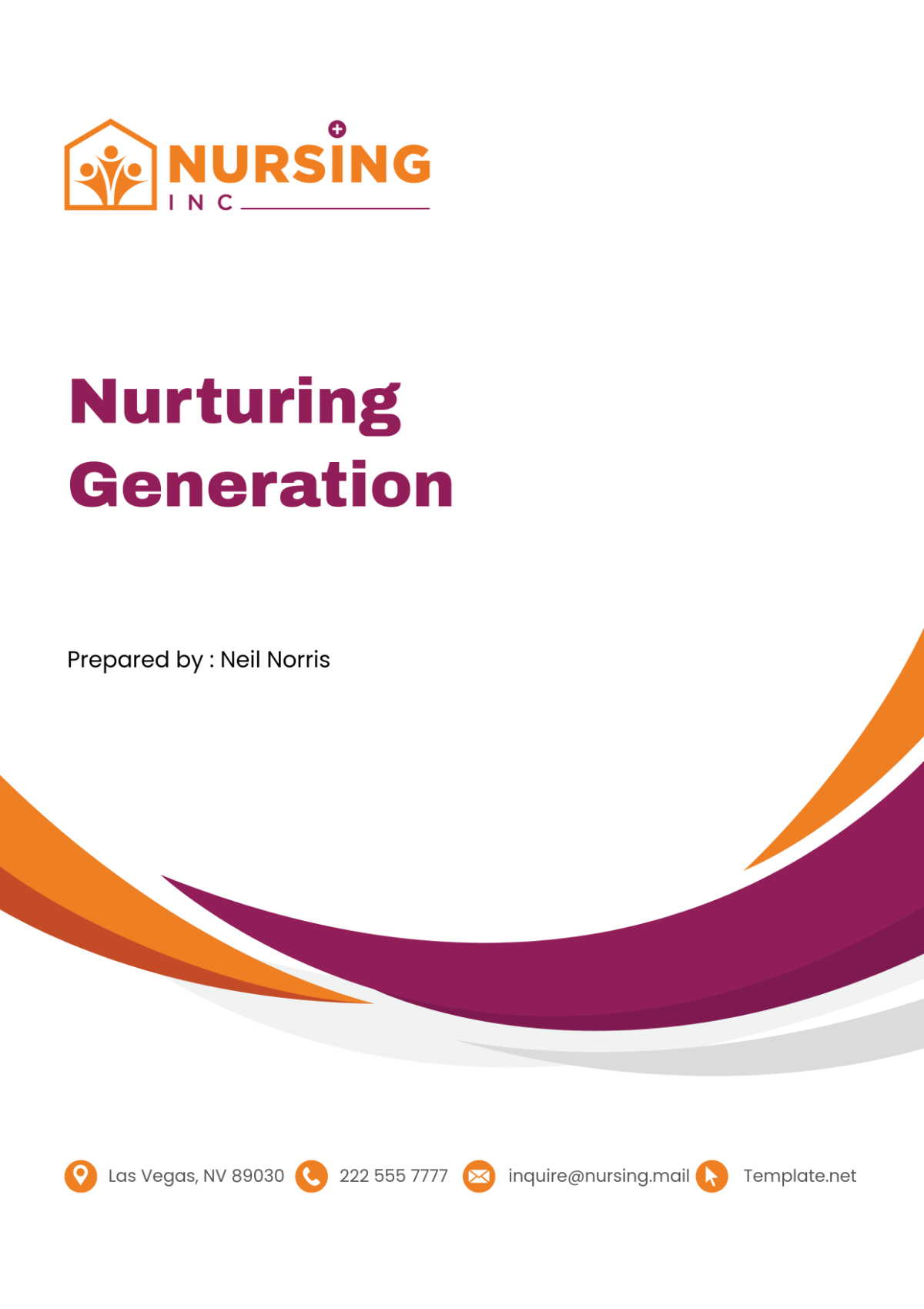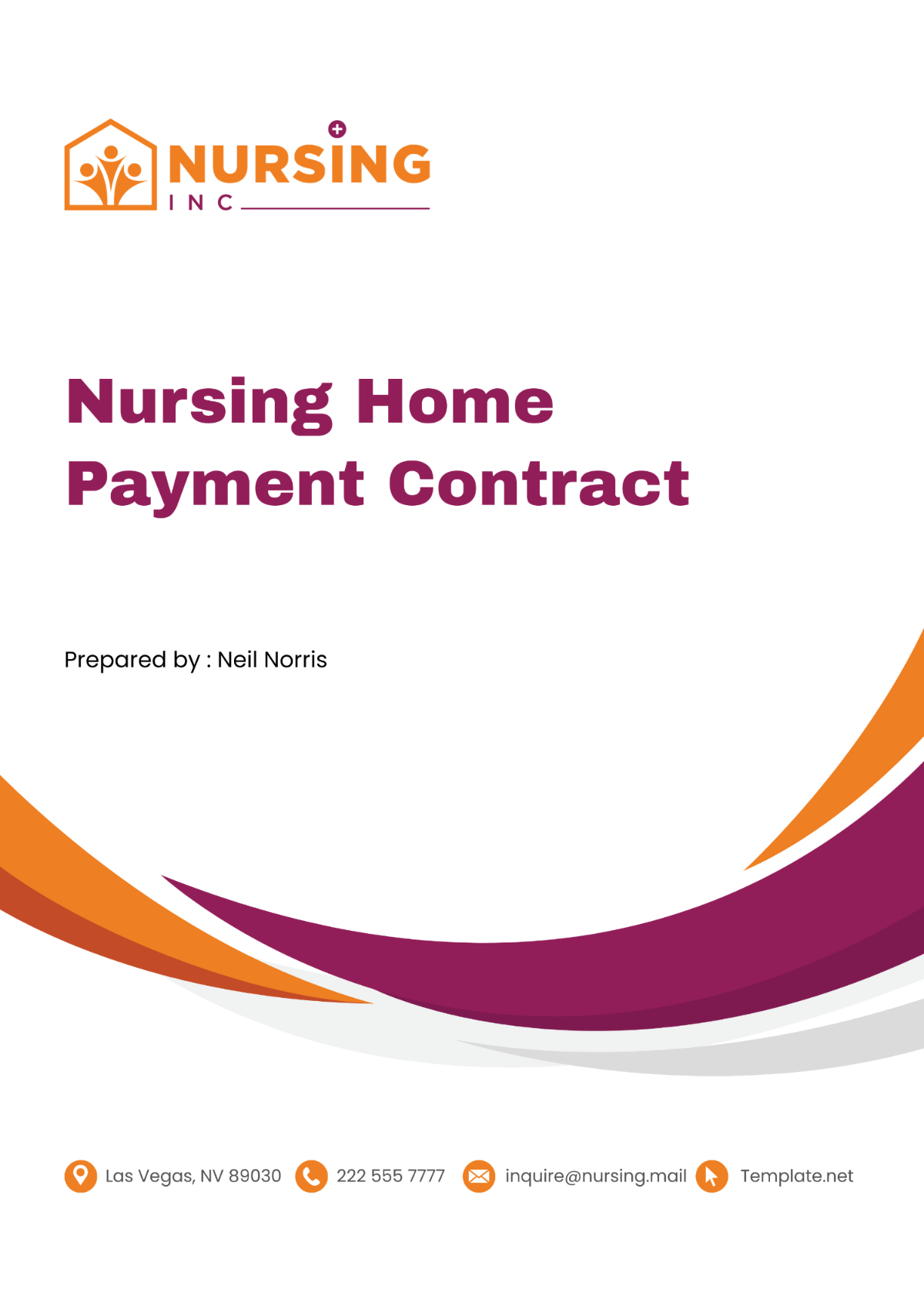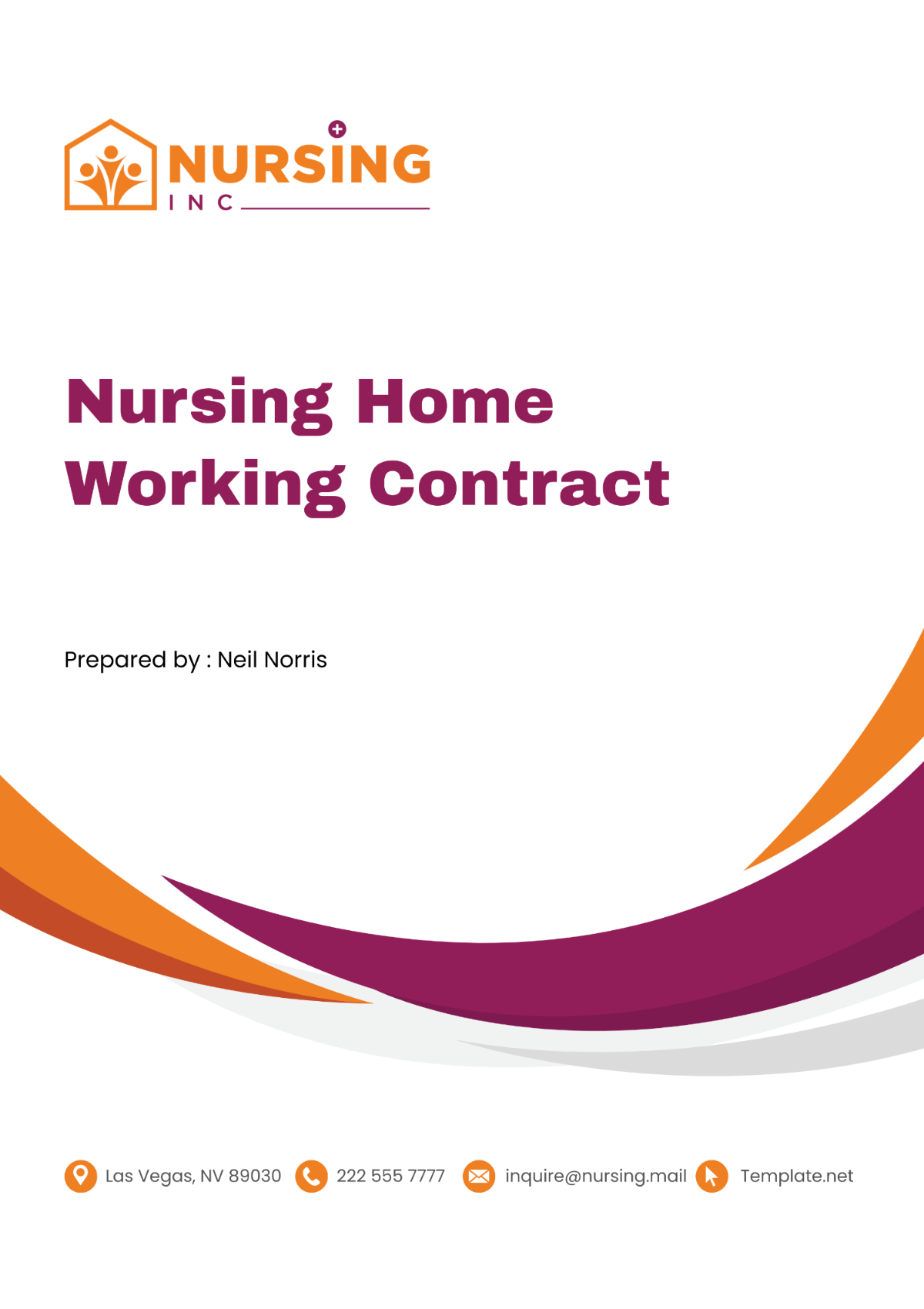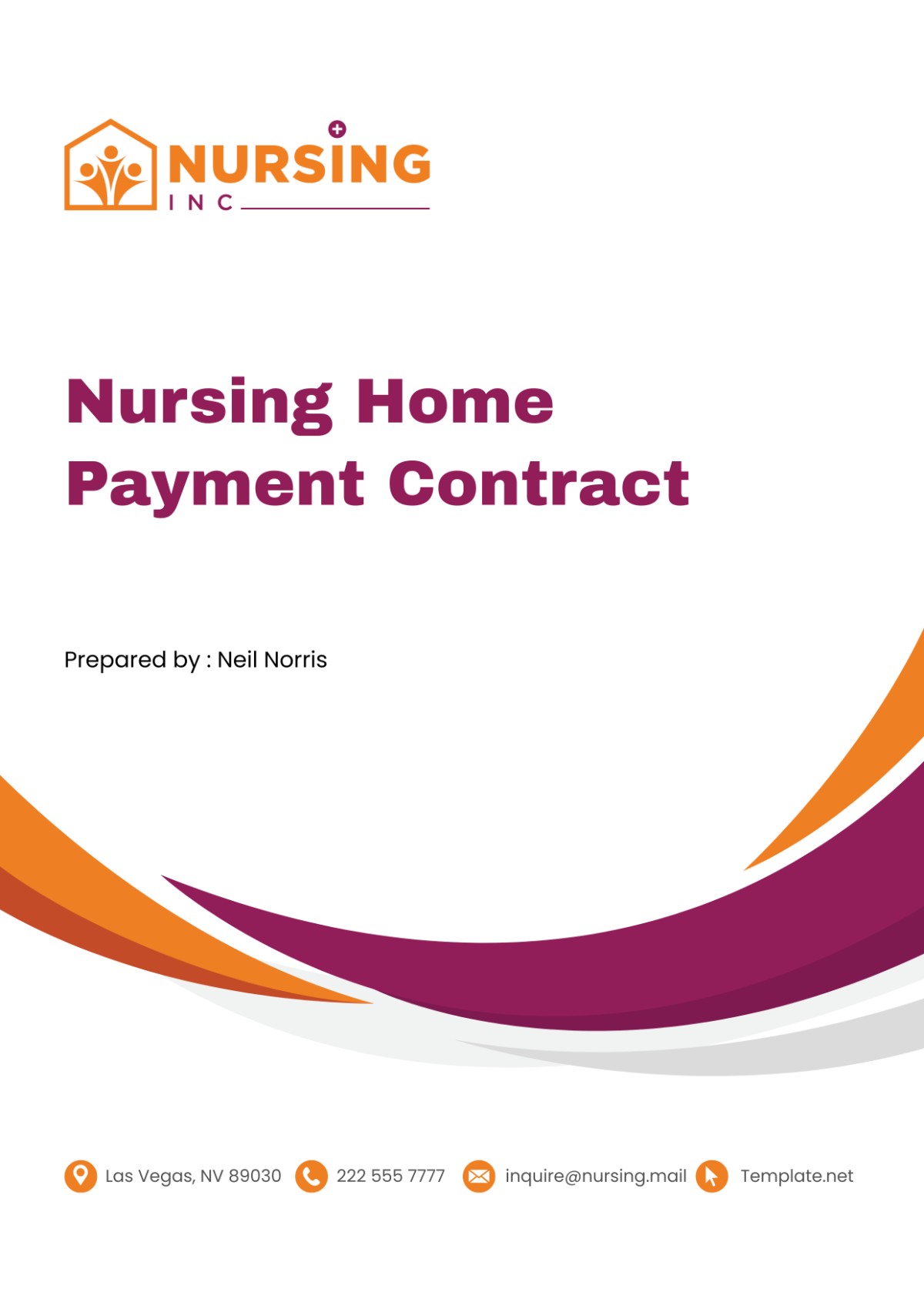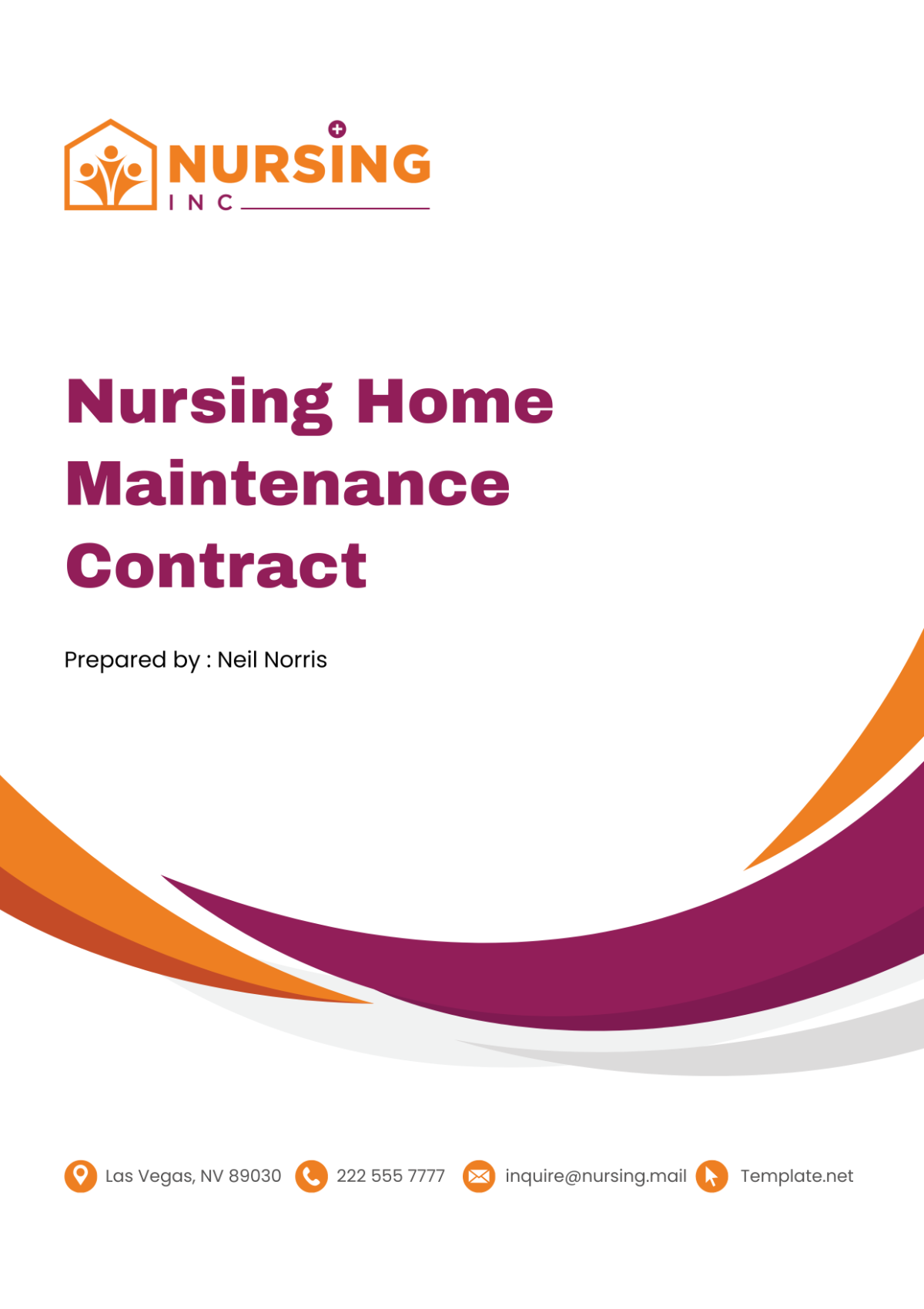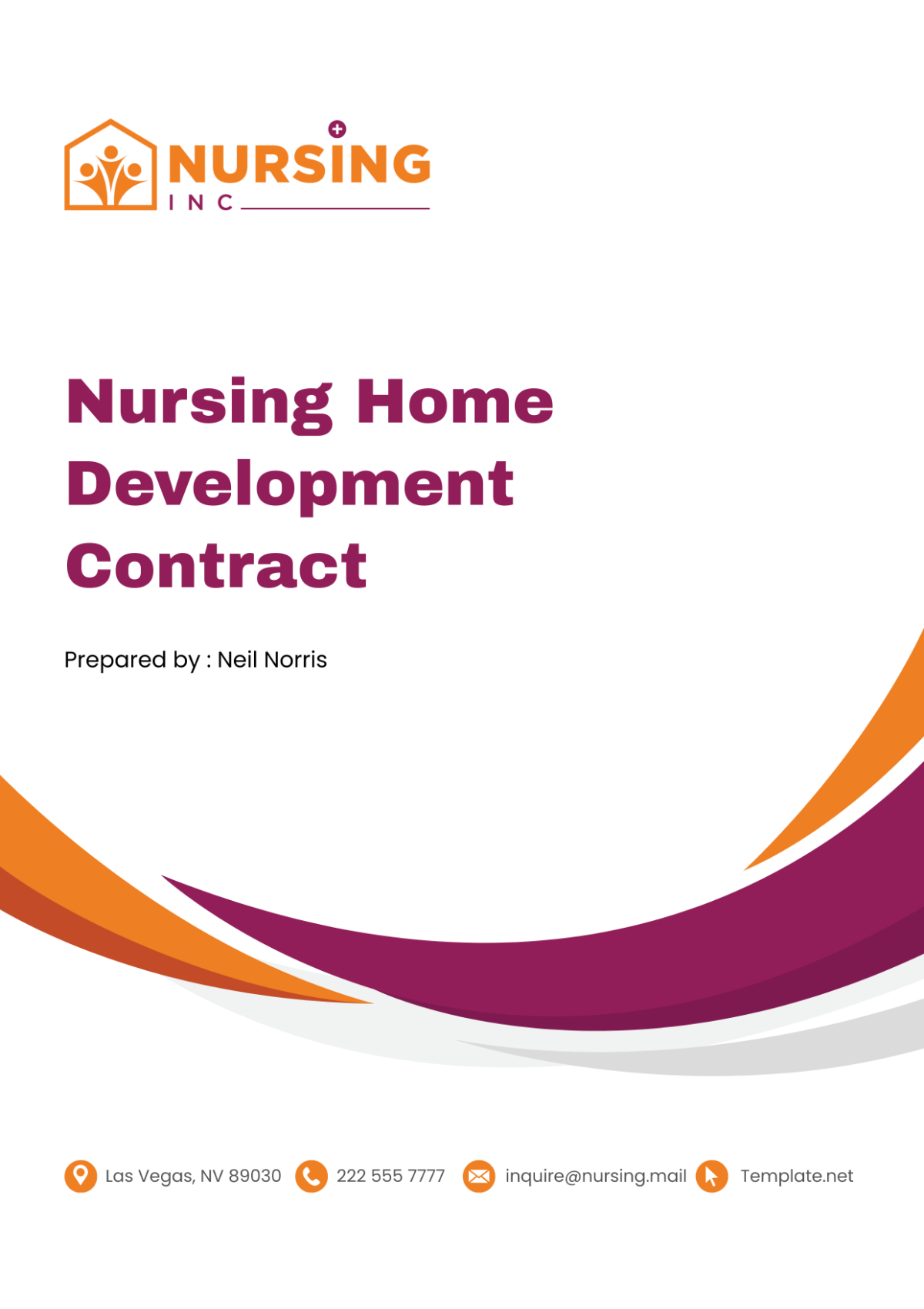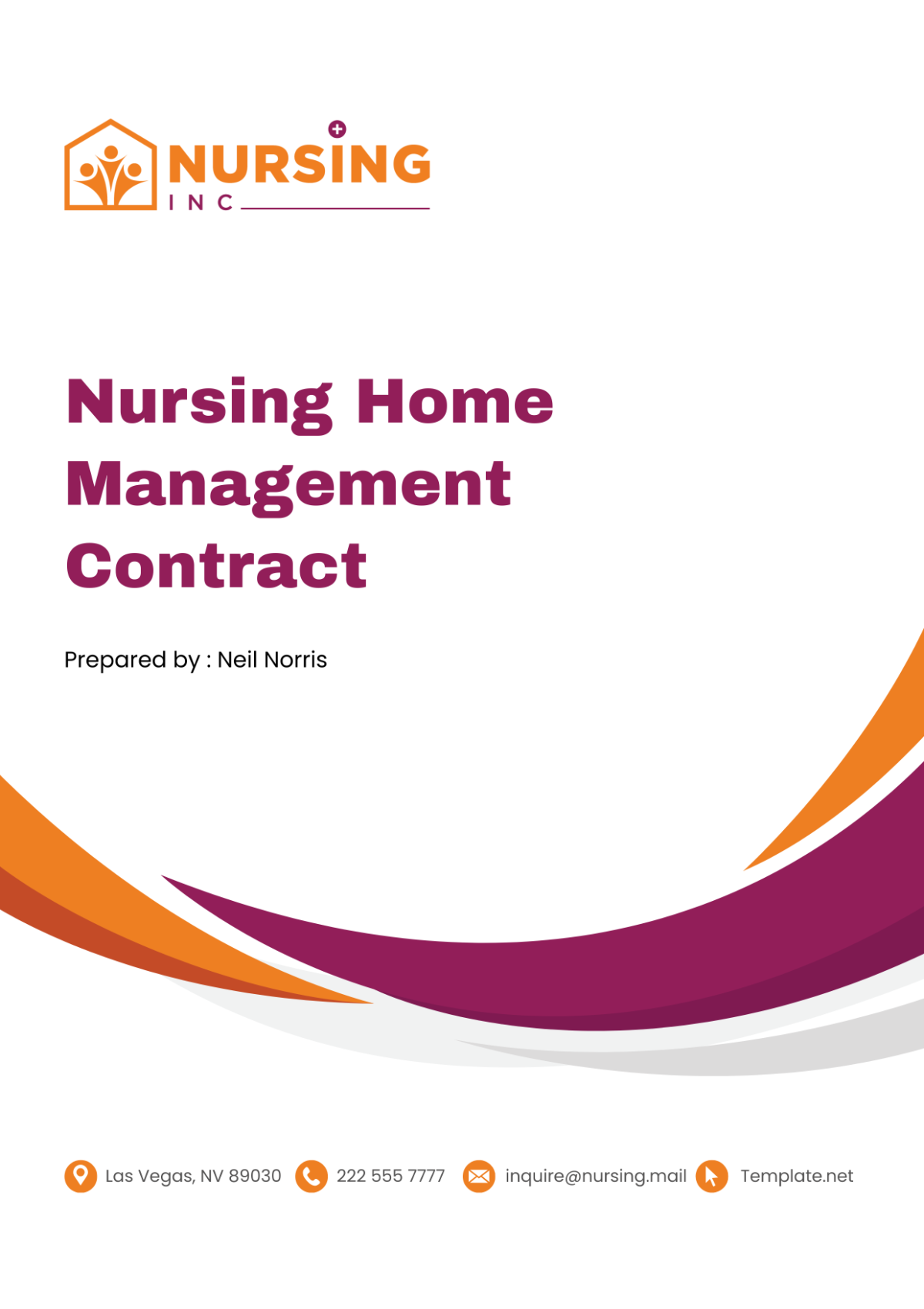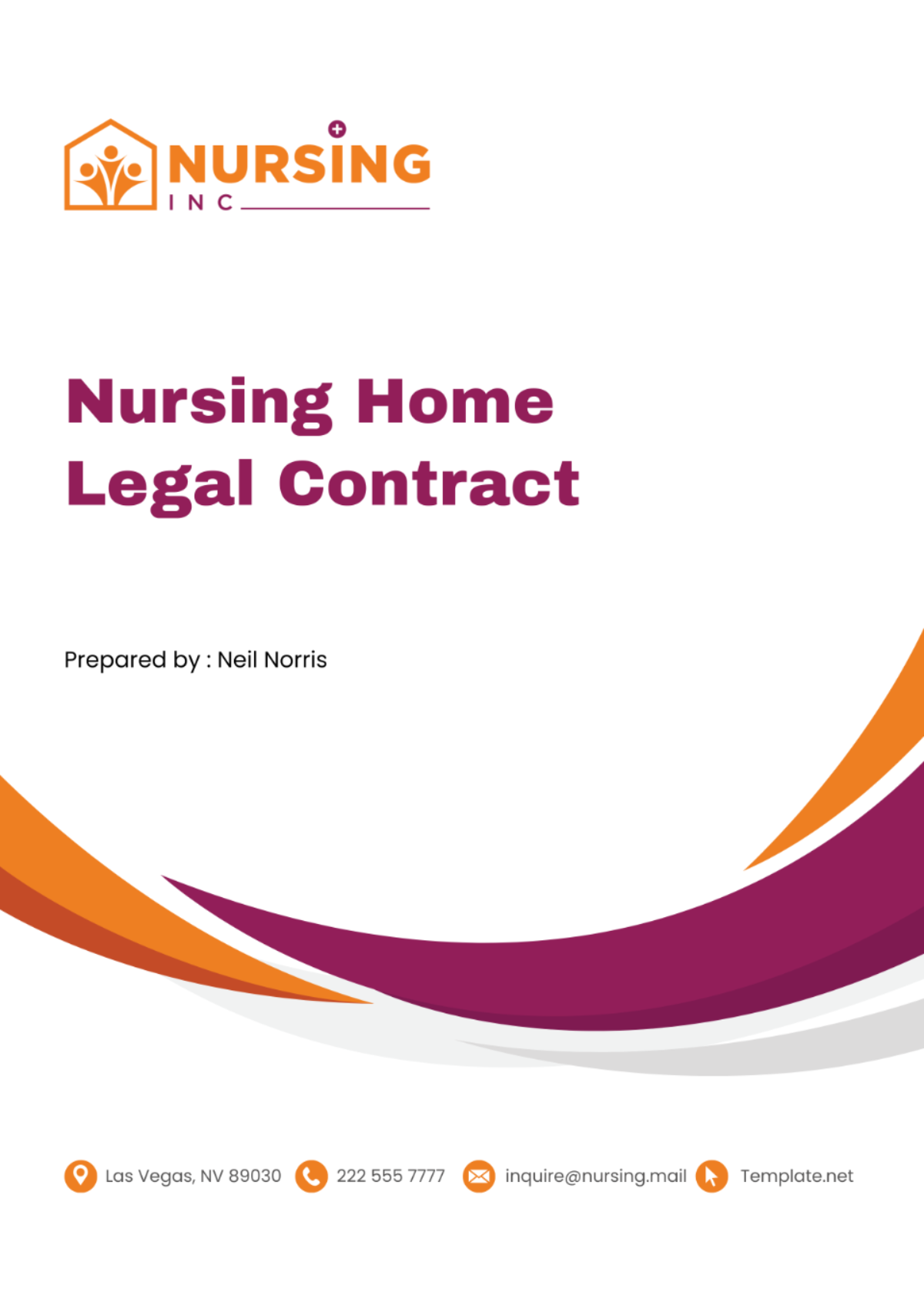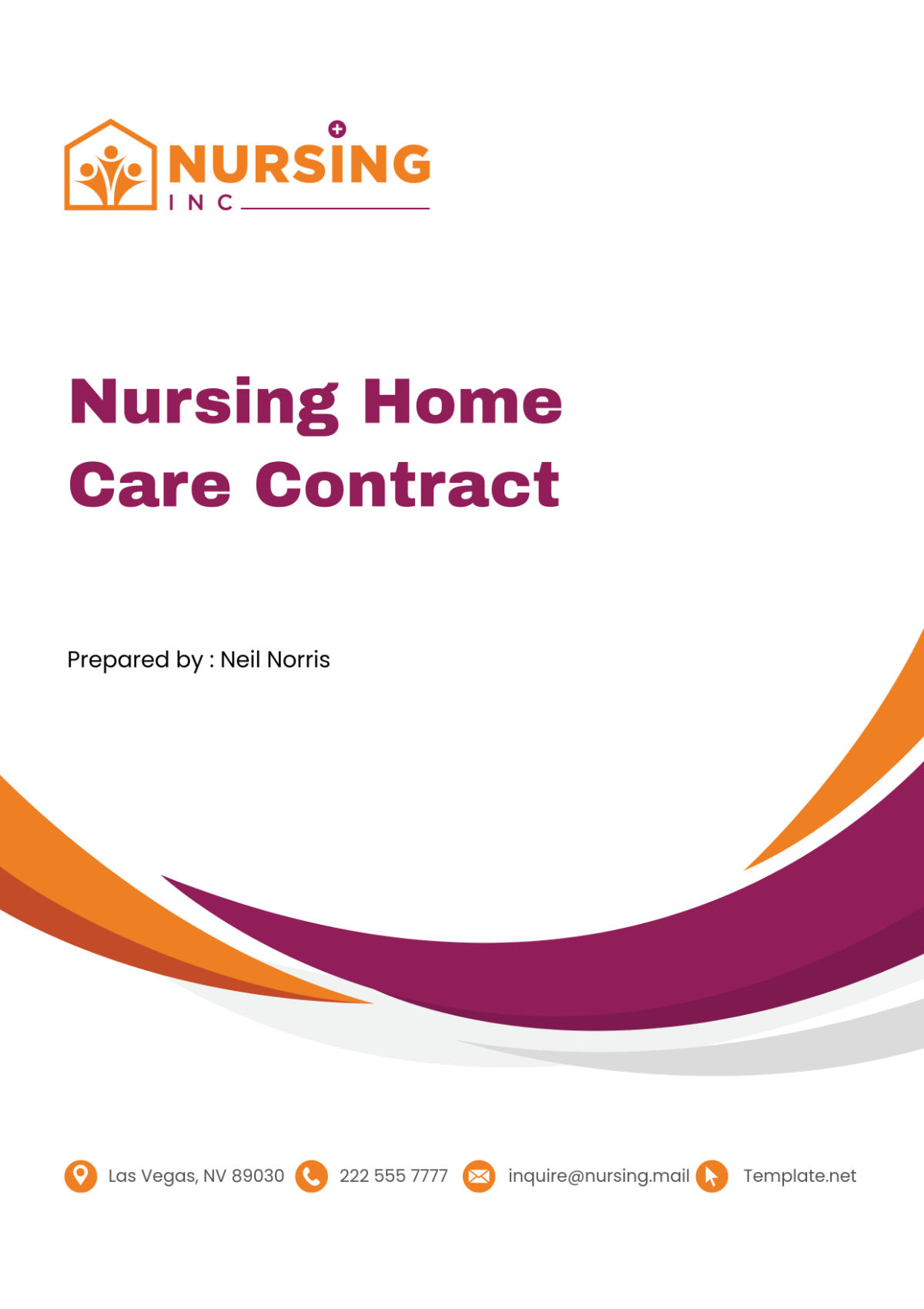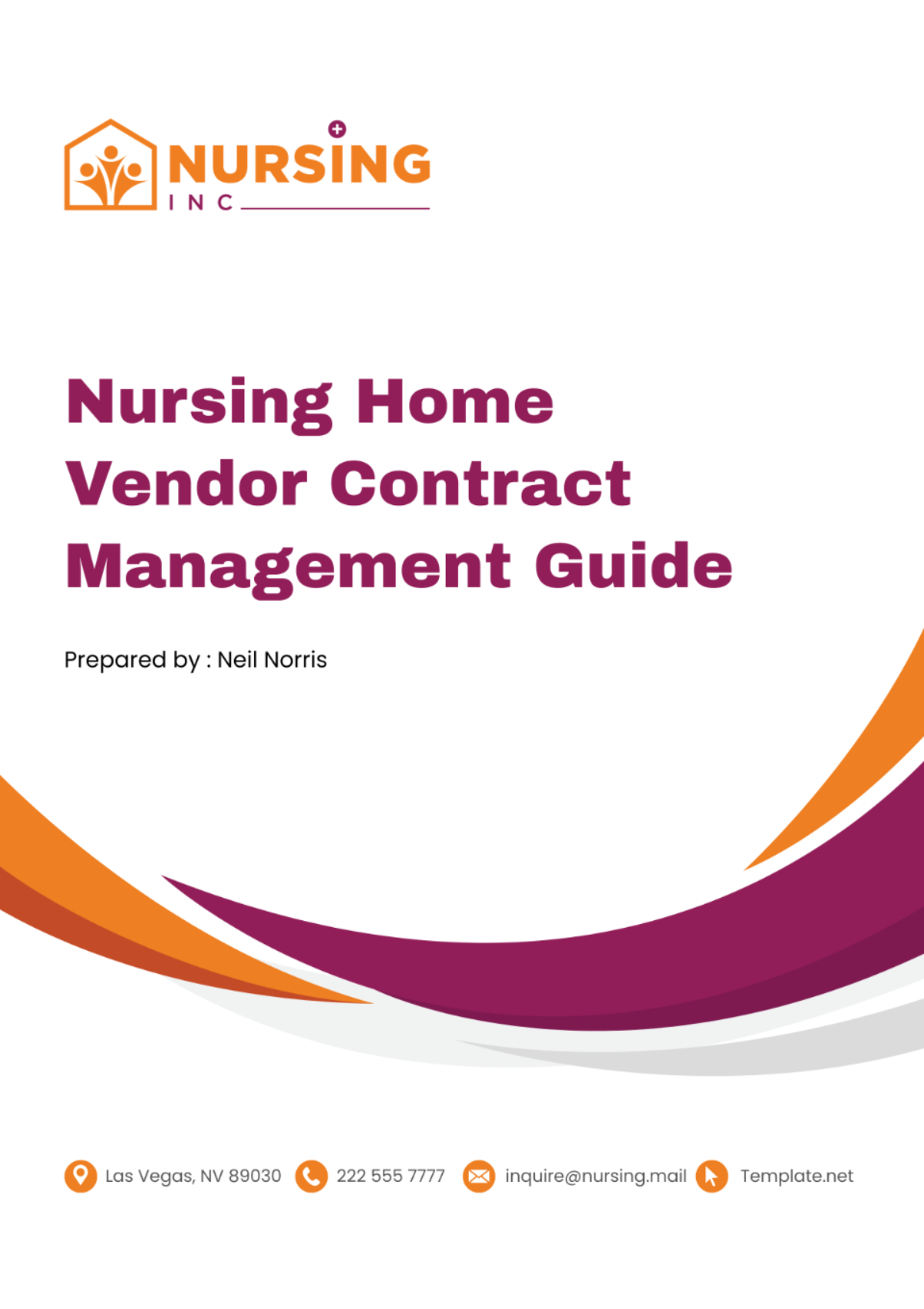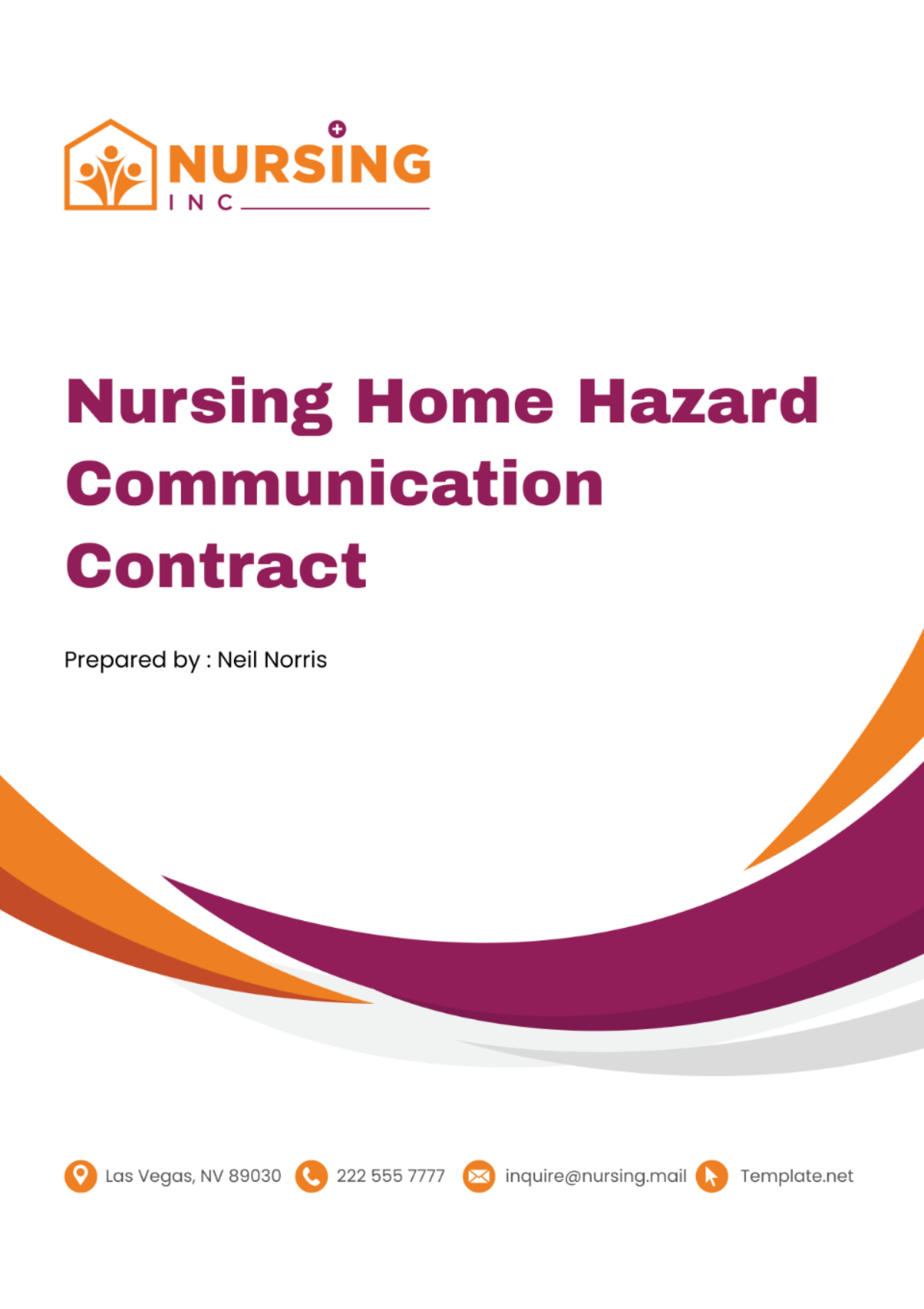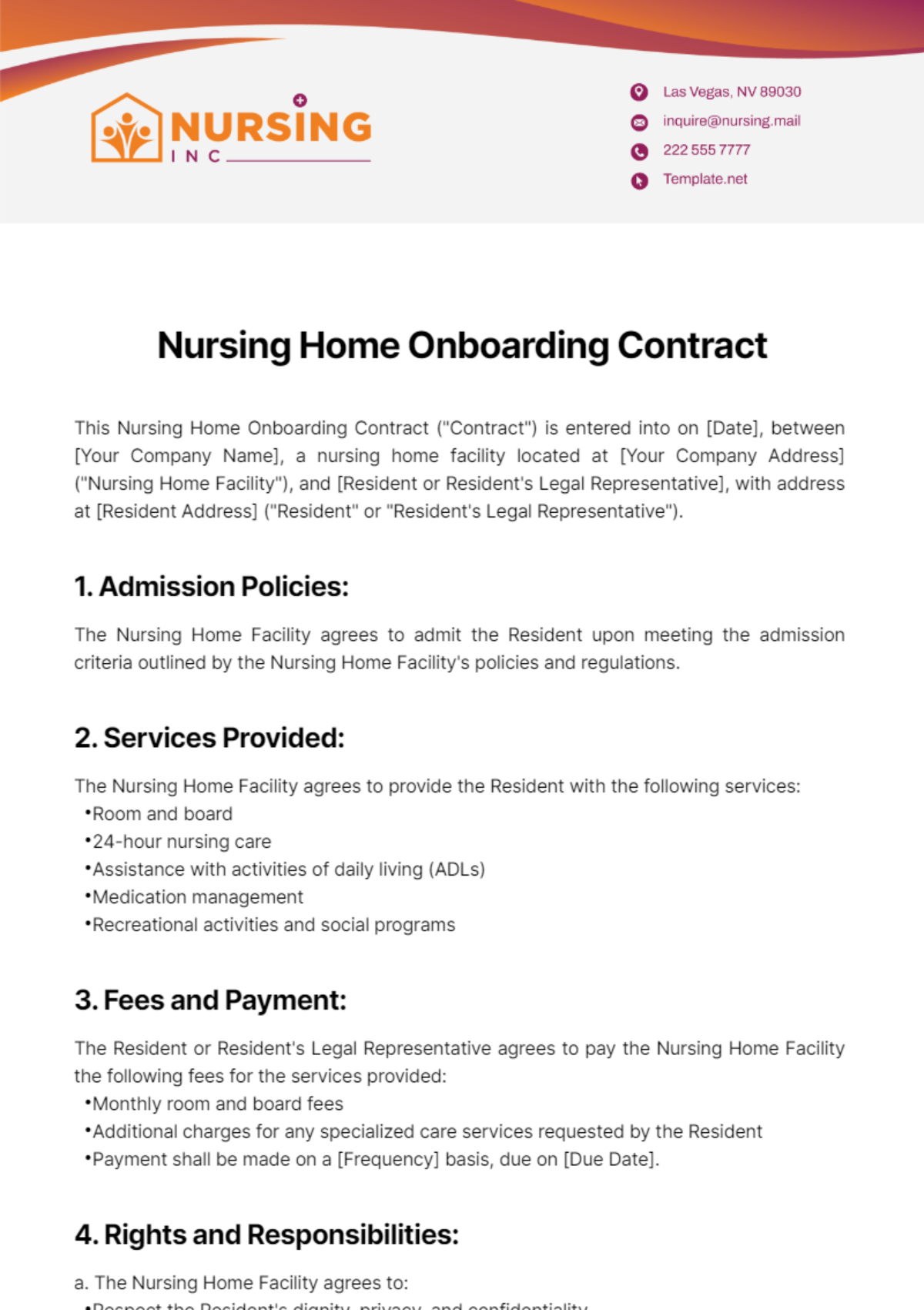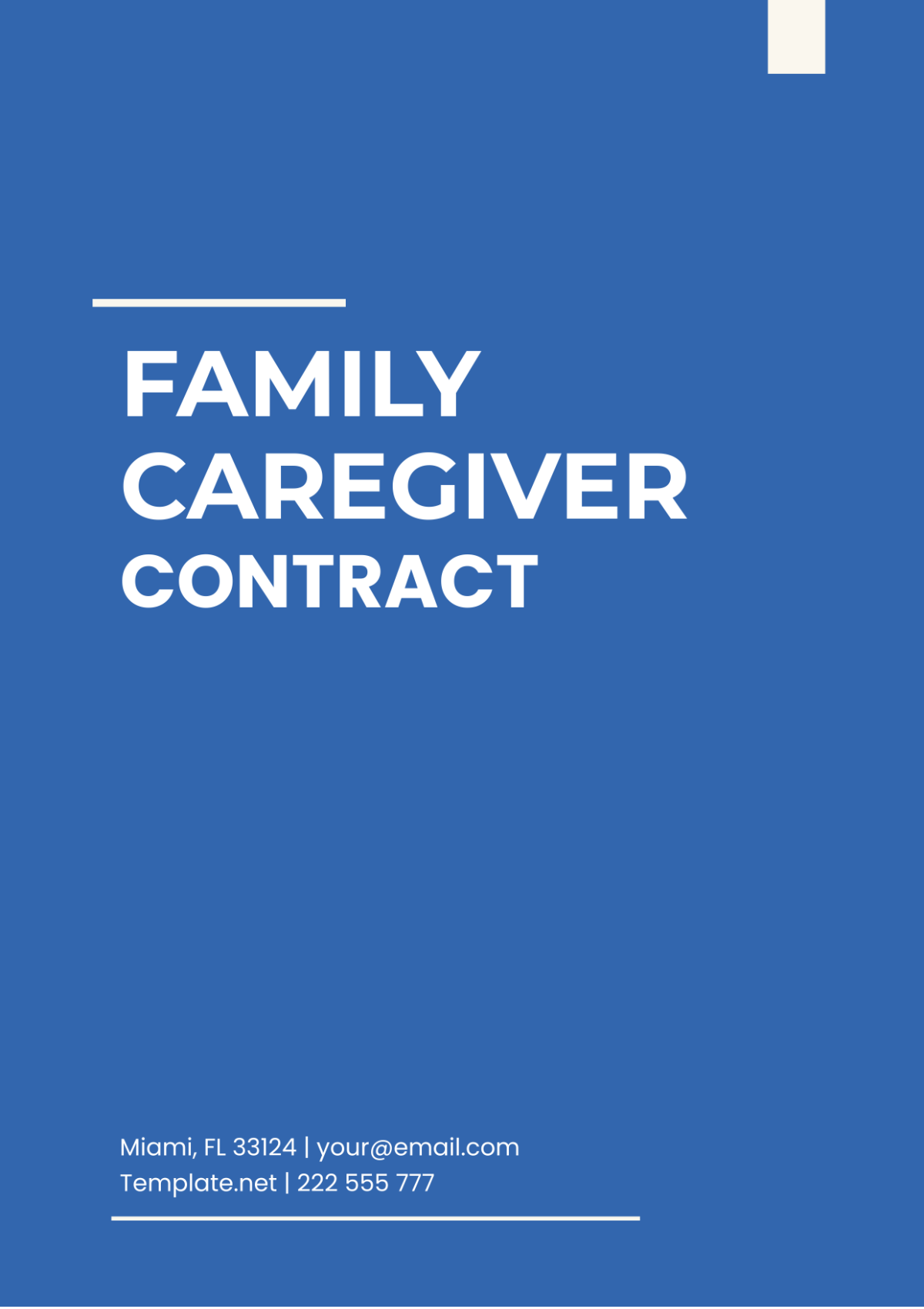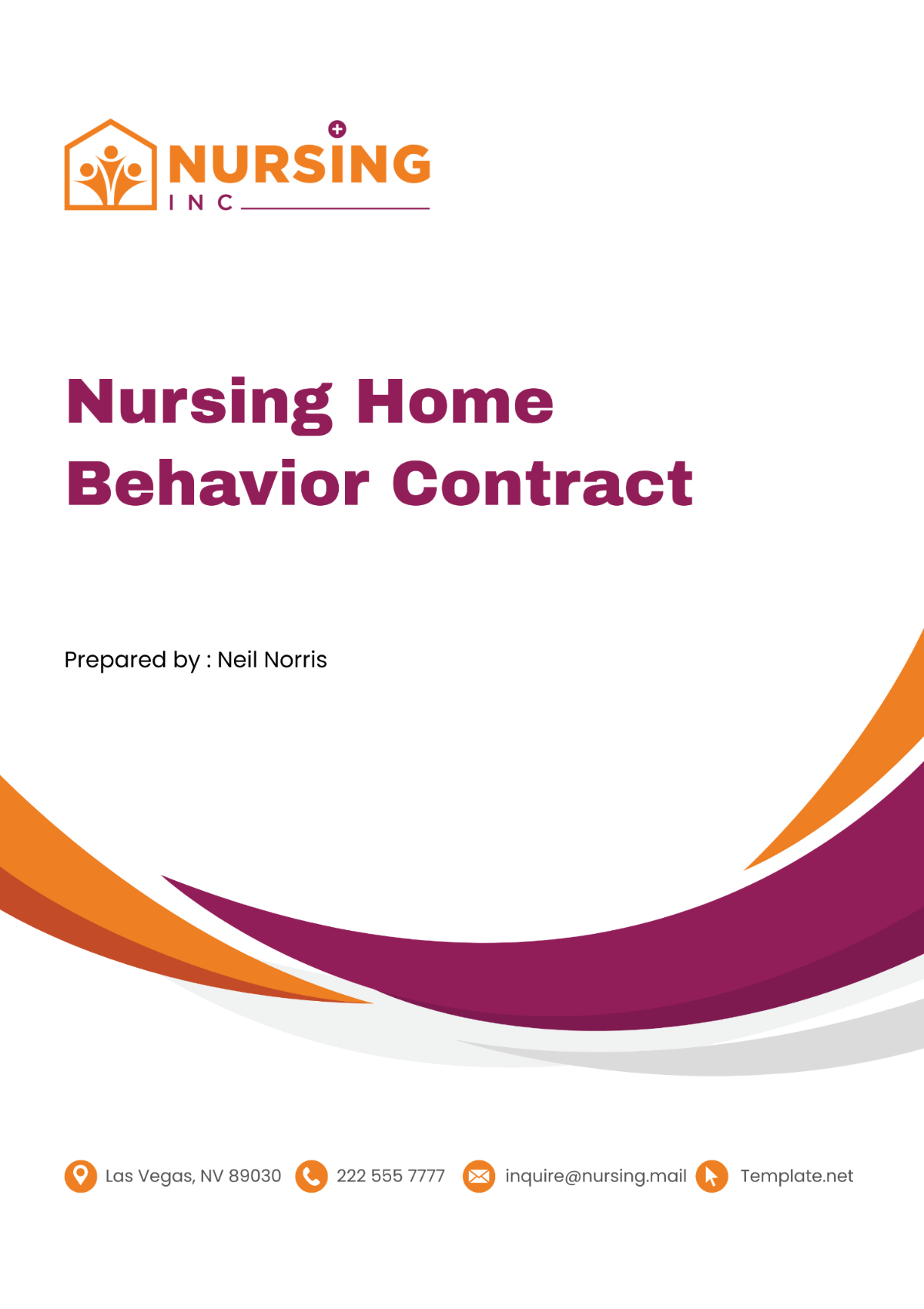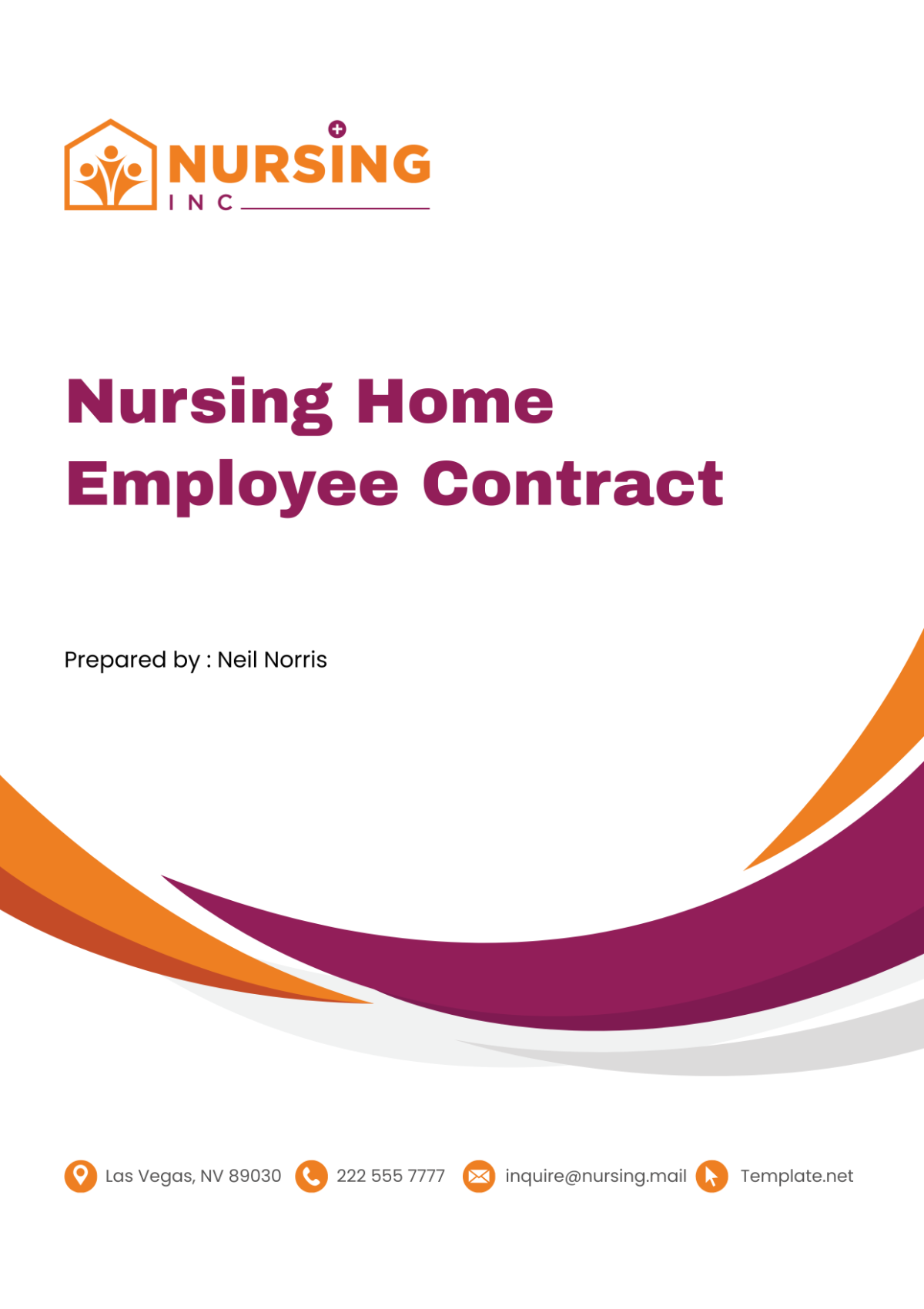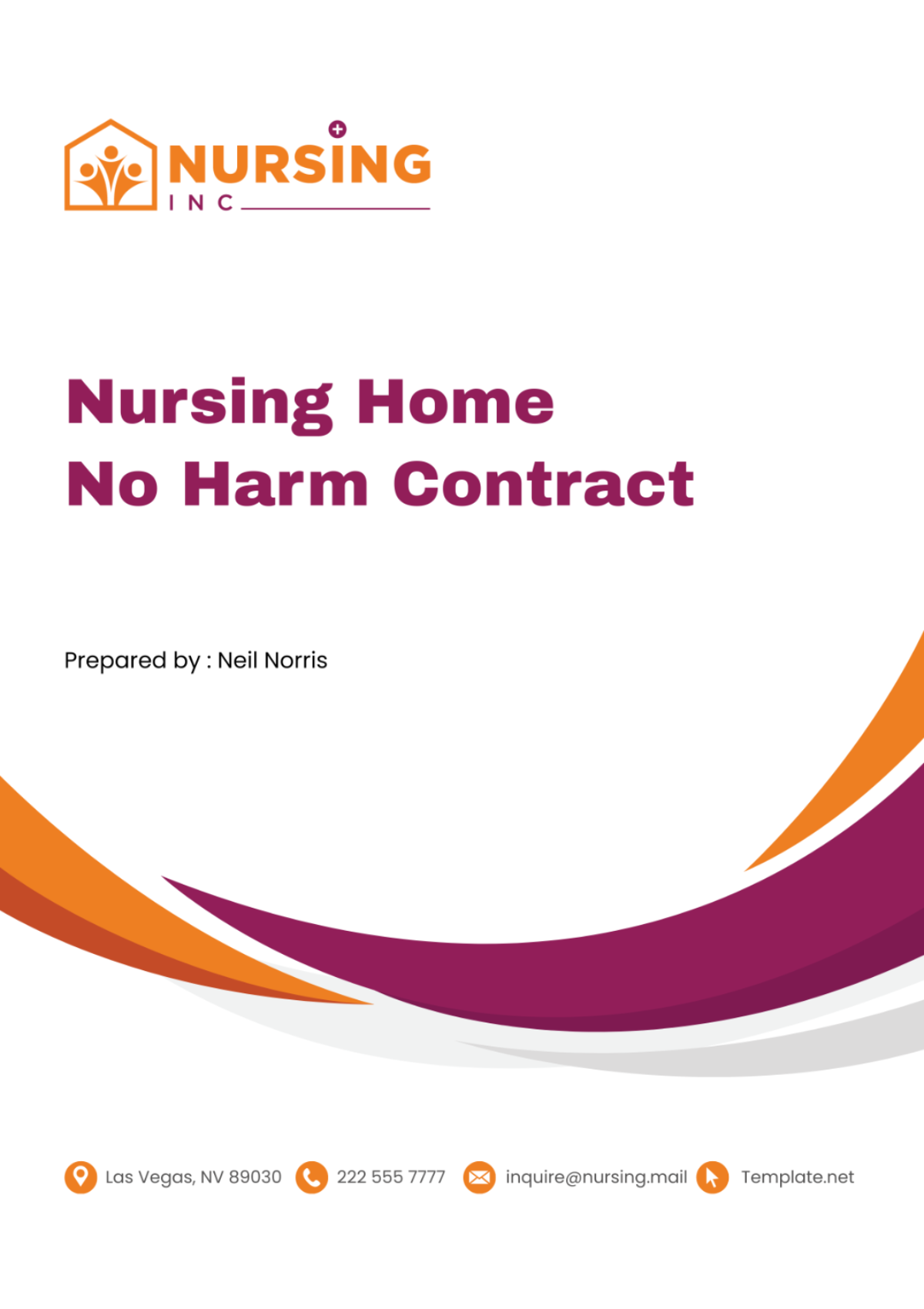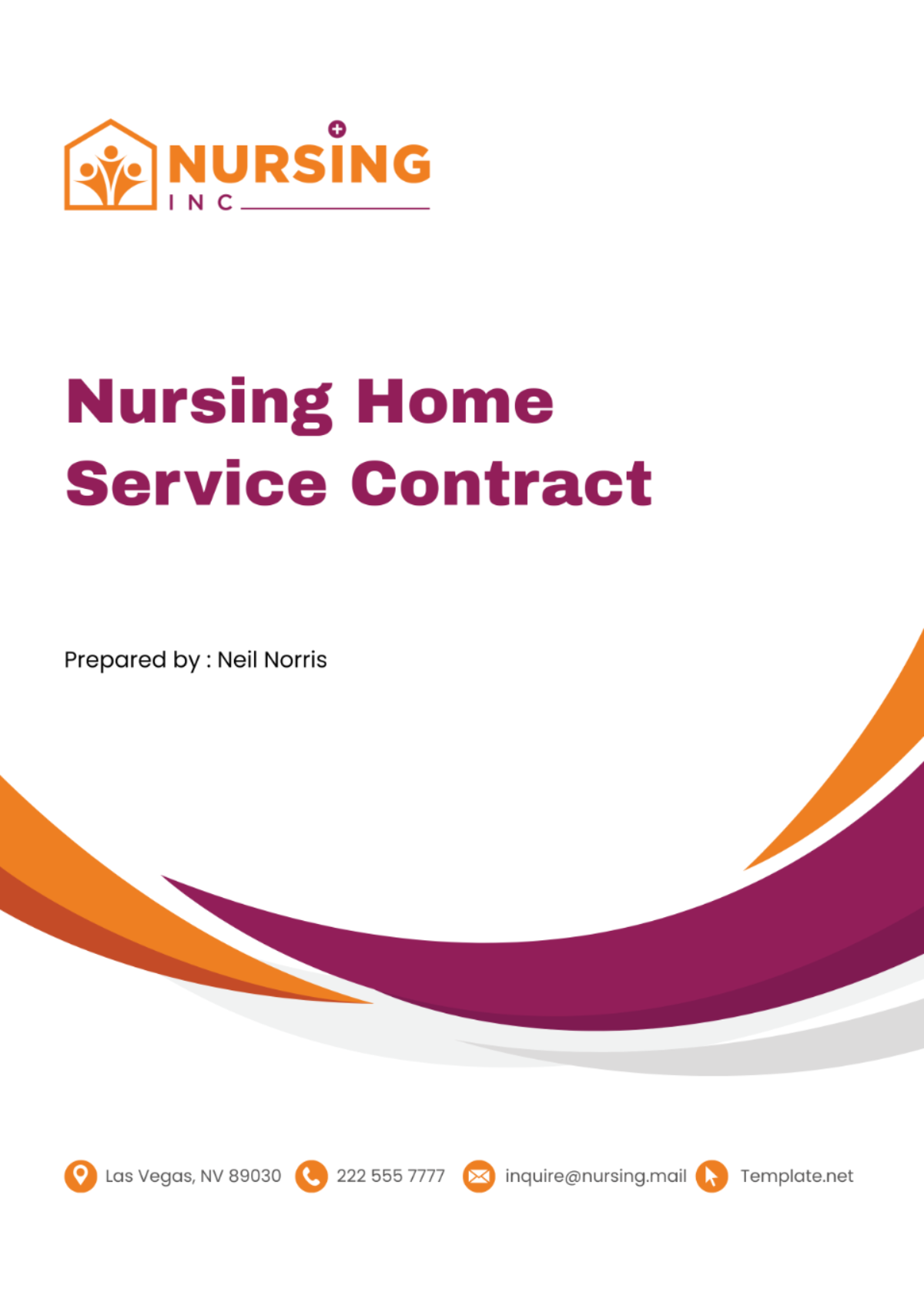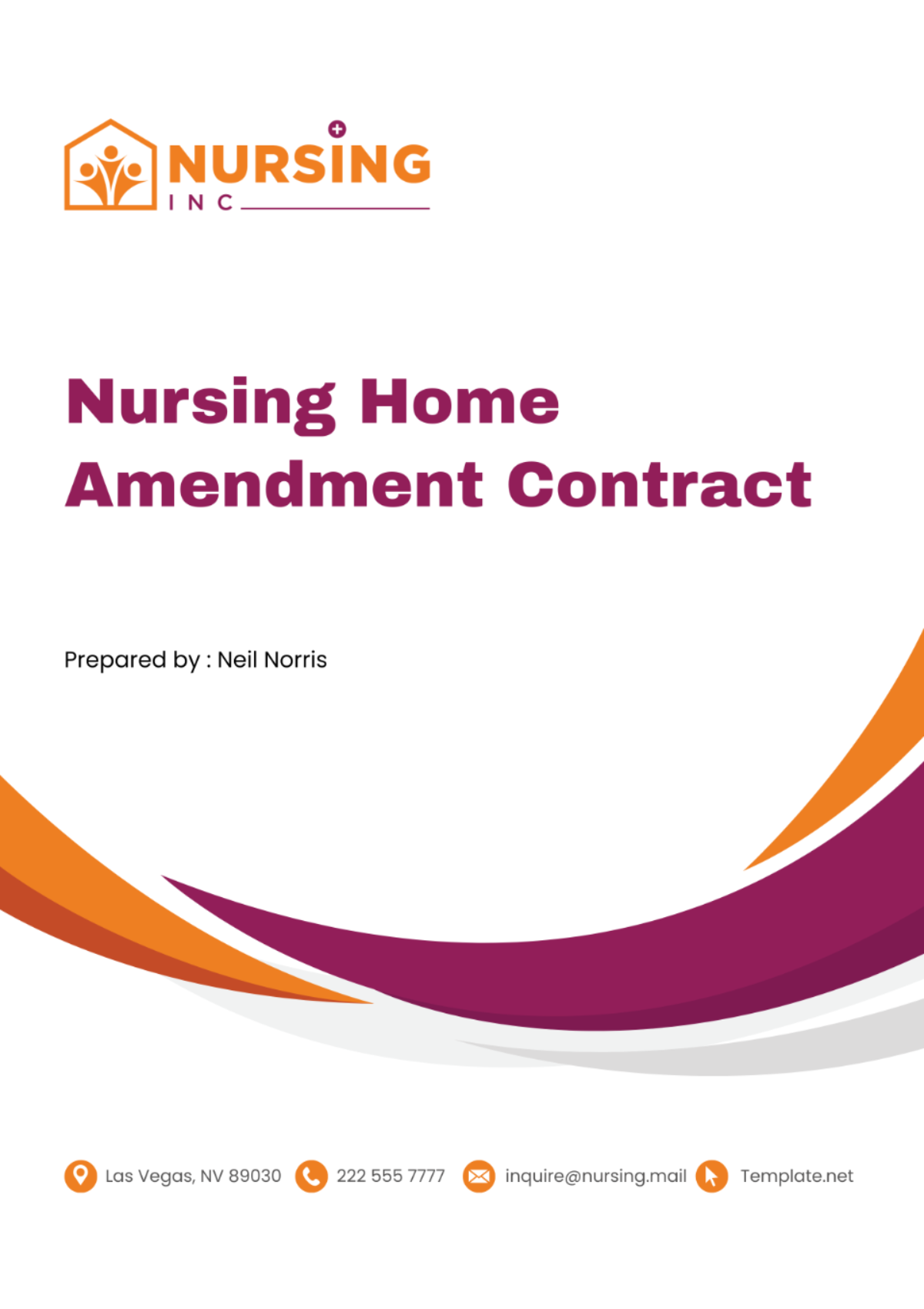Nursing Home Behavior Contract
This Nursing Home Behavior Contract (the "Contract") is entered into on [Month Day, Year] (the "Effective Date"), by and between [Your Company Name] (also referred to as "[Your Company Name]" or "Nursing Home Administration Name"), hereinafter referred to as the "Care Provider," with its principal place of business located at [Your Company Address], and [Nursing Home Resident Name] or [Legal Guardian/Representative Name] (the "Resident"), with their residence located at [Resident Address].
1. Purpose
This Contract is executed with the principal objective of instilling a framework of behavioral standards within the nursing home environment, thereby fostering an atmosphere of respect, security, and harmony for all occupants and staff members. It serves as a legal and ethical guideline for the conduct expected of each resident, clearly delineating the boundaries of acceptable behavior.
Furthermore, this document outlines the disciplinary actions that shall be enforced in the event of non-compliance, thereby safeguarding the collective well-being and dignity of the community. This Contract is foundational to the maintenance of a peaceful coexistence and the prevention of any conduct detrimental to the integrity and safety of the nursing home environment.
Clarification of Expectations: It is imperative that this Contract clearly communicates the behavioral standards expected of the residents, thereby establishing a baseline for conduct that supports a dignified and respectful communal living environment.
Conflict Prevention: By specifying prohibited behaviors and their consequent penalties, this Contract serves as a deterrent against actions that could disrupt the peace and safety of the nursing home, ensuring a stable and secure setting for all residents and staff.
Protection of Community Well-being: Above all, this Contract affirms the nursing home's commitment to the protection and enhancement of the well-being and dignity of its community members, reinforcing the environment as a sanctuary of care and mutual respect.
2. Behavioral Guidelines
This section delineates the conduct required of residents throughout their tenure at the facility, establishing a comprehensive code of behavior that underpins the ethos of respect, community, and cleanliness central to the nursing home's operations. Adherence to these guidelines is imperative for the creation and maintenance of a supportive and harmonious living environment for all residents, staff members, and visitors. The guidelines are as follows:
Respect for Community Members: Residents are expected to demonstrate unwavering respect towards fellow residents, staff, and visitors, eschewing any form of aggressive, threatening, or disrespectful behavior. This includes a prohibition on verbal abuse and all forms of harassment, ensuring a safe and dignified environment for everyone within the nursing home.
Aspect | Expectation | Examples of Prohibited Behavior | Implementation Strategies |
|---|---|---|---|
Verbal Interactions | Polite and considerate communication. | Insults, derogatory remarks, yelling. | Regular workshops on effective communication and conflict resolution. |
Physical Behavior | Non-threatening and respectful physical space. | Physical aggression, intimidating gestures. | Posting guidelines on respectful physical interactions in common areas. |
Social Interactions | Inclusive and harassment-free engagement with all community members. | Exclusionary practices, any form of harassment. | Organized social events promoting inclusivity and diversity awareness. |
Response to Disputes | Encouragement of peaceful resolution and reporting to staff rather than personal retaliation. | Escalation of conflicts, retaliation. | Mediation services and accessible reporting mechanisms for grievances. |
Cleanliness and Orderliness: Residents must maintain a high standard of cleanliness and order within their personal living spaces as well as communal areas. This responsibility underscores the importance of personal and shared environments that are conducive to health, comfort, and the well-being of the entire community.
Area | Expectation | Examples of Non-Compliance | Implementation Strategies |
|---|---|---|---|
Personal Living Space | Maintaining a neat and hygienic personal area. | Clutter, uncleanliness, hoarding. | Regular cleanliness checks and support services for organization. |
Communal Areas | Contributing to the tidiness and cleanliness of shared spaces. | Littering, leaving personal items in common areas. | Cleaning schedules and communal responsibility reminders. |
Waste Management | Proper disposal of trash and adherence to recycling policies. | Improper sorting of waste, not emptying bins. | Environmental awareness programs and clear signage for waste disposal. |
Maintenance Issues | Prompt reporting of any damages or maintenance needs to prevent deterioration and hazards. | Ignoring or hiding damage, misuse of facilities. | Easy reporting channels and regular maintenance inspections. |
Positive Participation: Engagement in communal activities and meetings is encouraged, provided it is done in a constructive and positive manner. This stipulation promotes an active and involved community, fostering a sense of belonging and mutual support among residents.
Activity | Expectation | Examples of Non-Compliance | Implementation Strategies |
|---|---|---|---|
Communal Events | Active involvement in events and activities designed to enrich the nursing home community. | Non-participation, disruptive behavior. | Diverse programming to cater to various interests and abilities. |
Meetings | Constructive participation in meetings, providing feedback and suggestions where appropriate. | Negativity, refusal to engage. | Facilitated discussion sessions and feedback mechanisms. |
Volunteer Roles | Willingness to take on volunteer roles within the community for those who are able. | Refusal to contribute, lack of initiative. | Volunteer recognition programs and personalized role assignments. |
Community Support | Support and encouragement for fellow residents, particularly in their participation and community integration. | Indifference, isolationism. | Buddy systems and mentorship programs for new or less active residents. |
Compliance with these behavioral guidelines is not merely encouraged but expected, as they are essential to the welfare and smooth operation of the nursing home. Failure to adhere to these standards may result in the implementation of disciplinary actions, as outlined in the consequences section of this Contract.
3. Prohibited Behaviors
In the interest of preserving the integrity, safety, and respectful atmosphere of the nursing home environment, certain behaviors are deemed unequivocally unacceptable and are expressly prohibited. Violations of these prohibitions are serious and will result in stringent disciplinary measures to protect all members of the nursing home community. The prohibited behaviors include, but are not limited to:
Violence and Threats: Engaging in physical violence or issuing threats of violence disrupts the community's peace and safety, and such actions will not be tolerated under any circumstances.
Illegal Substances: The possession or use of illegal substances or unauthorized medications poses a significant risk to the health and well-being of the nursing home community and is strictly forbidden.
Theft and Vandalism: Theft or intentional damage to property belonging to residents, the Care Provider, or staff undermines the trust and respect essential to our community's fabric and is strictly prohibited.
Discrimination and Harassment: Any form of discrimination or harassment based on race, gender, sexual orientation, religion, or disability is antithetical to the values of dignity and respect that our community upholds.
4. Consequences for Non-Adherence
In the event of non-compliance with the terms outlined in this Contract, the Care Provider is vested with the authority to enforce disciplinary measures deemed necessary to maintain the nursing home's integrity and the well-being of its community. The imposition of such measures will be proportionate to the severity of the violation and may escalate in response to repeated offenses. The spectrum of disciplinary actions includes:
Verbal and Written Warnings: Initial infractions will typically result in verbal or written warnings, serving as a formal notice of the violation and a reminder of the expected behavioral standards.
Behavioral Counseling: Residents may be required to participate in behavioral counseling sessions aimed at addressing and correcting the underlying issues contributing to the breach of conduct.
Privilege Restrictions: As a further measure, the resident may face restrictions on certain privileges within the nursing home, intended to reinforce the importance of adherence to community standards.
Termination of Residency: In cases of severe or persistent violations, the ultimate sanction of residency termination may be imposed, reflecting the seriousness with which the Care Provider views the infringement of community norms.
5. Governing Law
This Contract shall be governed by and construed in accordance with the laws of the State of [State], without giving effect to any principles of conflicts of law.
6. Amendments
This Contract may be amended or modified only by a written agreement, signed by both the Care Provider and the Resident or their Legal Guardian/Representative.
7. Entire Agreement
This Contract constitutes the entire agreement between the parties concerning the subject matter hereof and supersedes all previous agreements, understandings, and negotiations, whether written or oral.
IN WITNESS WHEREOF, the parties have executed this Contract as of the Effective Date written above.
Resident/Legal Guardian/Representative Signature:

[Nursing Home Resident Name]/[Legal Guardian/Representative Name]
[Date]
Care Provider/Nursing Home Administration Signature:

[Your Name], [Your Job Title]
[Your Company Name]/[Nursing Home Administration Name]
[Date]
